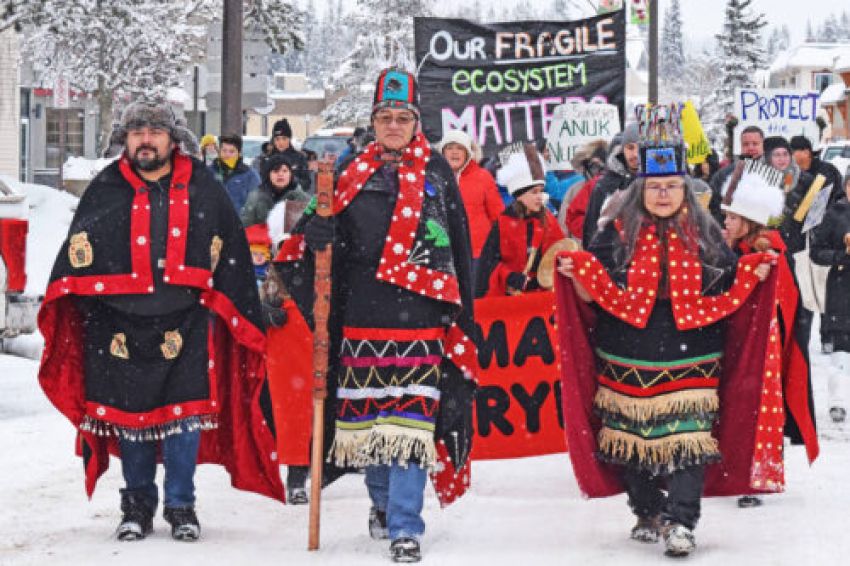Demonstrations in solidarity with Wet'suwet'en land defenders fighting against a proposed fracked gas pipeline continue across Canada.
While addressing Canada's House of Commons on February 18, Trudeau called for "dialogue and mutual respect" regarding the ongoing rail blockades and protests in solidarity with Wet'suwet'en Nation hereditary chiefs and land defenders fighting to prevent construction of a gas pipeline on their unceded territory in British Columbia.
Protesters from the Tyendinaga Mohawk Territory have stationed themselves beside rail tracks near Belleville, Ontario, since February 6 to protest violent Royal Canadian Mounted Police (RCMP) raids, targeting Wet'suwet'en land defenders demonstrating against the Coastal GasLink pipeline.

Reuters reported on February 18 that the "Canadian National Railway Company (CN) has obtained a court injunction to end the blockade in Ontario, but police have so far refrained from using force to uphold it".
VIA Rail announced the same day that following a notification from CN, partial service is set to resume between Quebec City, Montreal, and Ottawa beginning the morning of February 20.
Among those who have called for ending the blockades by force is Conservative Leader Andrew Scheer, who denounced Trudeau's speech Tuesday as the "weakest response to a national crisis in Canadian history." Scheer has blamed the blockades on "a small group of radical activists" and accused them of holding the Canadian economy hostage.
According to CBC News, Trudeau had a meeting with Bloc Québécois Leader Yves-François Blanchet, New Democratic Party Leader Jagmeet Singh and the Green Party's parliamentary leader Elizabeth May to discuss the government's response to the ongoing blockades.
Protests continued along the nation's railways and in the streets. More than 1,000 people marched in Toronto on February 17, chanting, "when justice fails, block the rails, shut Canada down" and placards that read: "No Consent No Pipeline" and "Protect Land Defenders".
Erika Chan, a protester at the Toronto march on Family Day, told CBC News: "There needs to be meaningful consultation with Indigenous peoples before building a pipeline.
"It's pretty clear what true reconciliation and true sustainability would actually mean. It's up to the government to decide whether they are going to follow through with that."
Demonstrations continued the following day, with protesters blocking traffic in the city of Kitchener, Ontario, carrying signs that said: "We stand with Wet'suwet'en land defenders" and "Hands off Wet'suwet'en".
Throughout February, Indigenous protesters and their allies have gathered at government buildings and Coastal GasLink offices and shut down ports, railways, streets, and Vancouver's Granville Street Bridge to support Wet'suwet'en hereditary chiefs.
Swedish climate activist Greta Thunberg turned to Twitter to urge her followers to support the Wet'suwet'en Nation in the fight against the pipeline and shared a resource guide for supporters of the protests.
[Abridged from Common Dreams.]